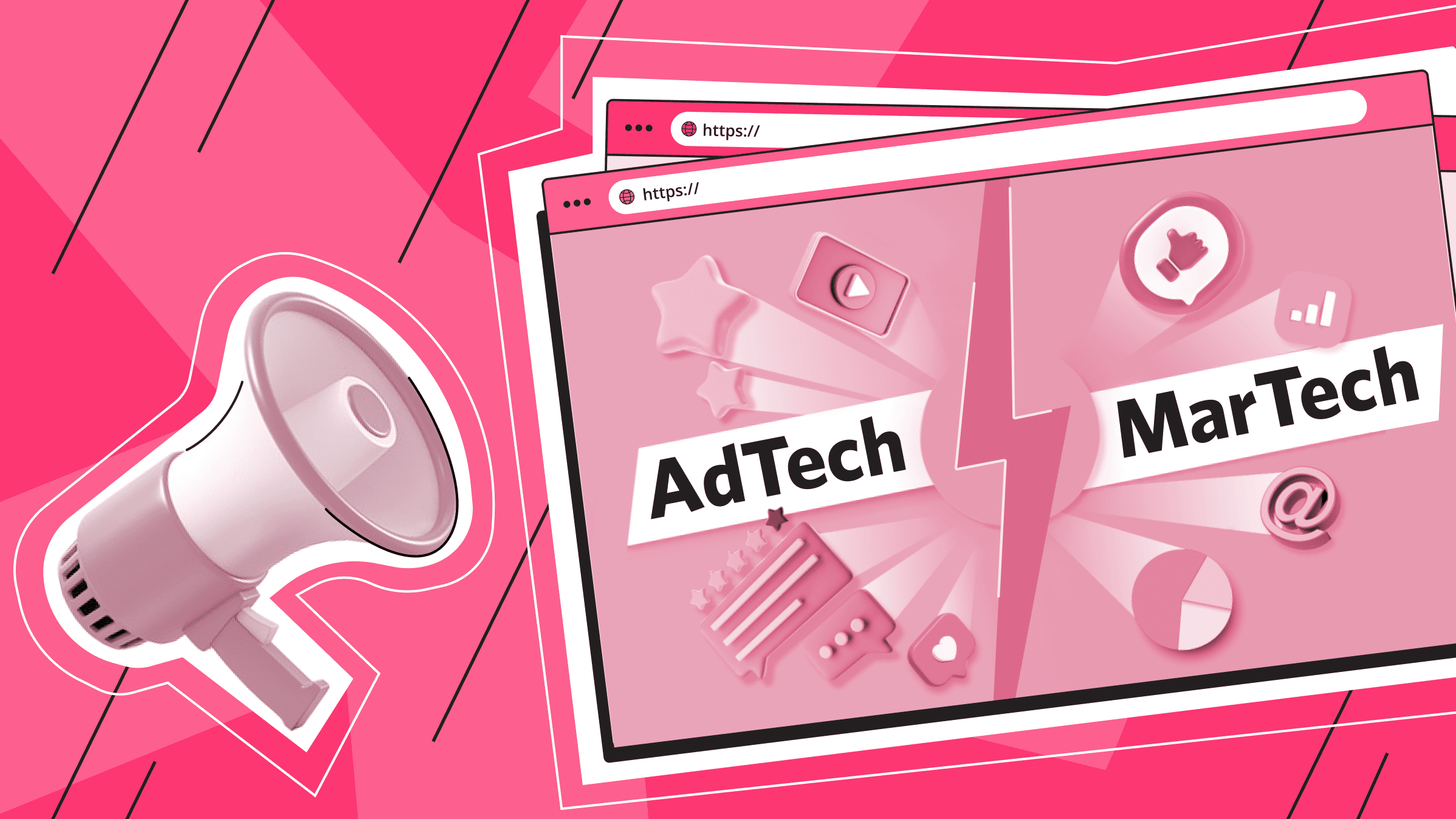
Marketing is an ever-evolving field that demands continuous engagement. News, emerging technologies, the integration of artificial intelligence, and new strategies to enhance campaign effectiveness are all influencing the industry.
Following marketing trends can help you adapt to a changing market. Here are some trends for 2024 to consider when deciding which innovations to implement in your business.
AI Marketing Automation

The availability of AI APIs allows for limitless integration possibilities into various applications and systems. This speeds up the work of any specialist, including generating ads, creatives, content plans, and more.
According to Kantar's 2023 survey of almost 900 marketers worldwide, approximately 67% of professionals hold a favorable view of Gen AI, or generative artificial intelligence.
The year 2023 has been marked by news of the development of artificial intelligence and its integration into many commonly used applications. Despite preconceptions about AI, the technology is quickly making its way into the marketing industry as an automation tool.
Experiments with generative AI in 2023 will inevitably lead to broader and deeper technology implementation across various industries. While introducing AI to automate certain marketing processes, it is essential to note that creativity, innovative solutions, and experienced professionals are still necessary.
Conversational marketing is crucial in 2024. It involves using targeted messaging and automation through artificial intelligence to interact with customers in real time. This area of digital marketing utilizes intelligent chatbots with machine learning and natural language processing (NLP), enabling customers to engage in a two-way conversation with the brand.
Regarding customer interactions, it's safe to say that consumers expect a prompt response to their requests. Delayed responses can cost a business potential customers. However, not all businesses can provide 24/7 customer service.
Virtual chatbots trained on the technical basis of your Help Center and other resources can be implemented to provide customers with answers to their questions. Additionally, chatbots and virtual assistants based on artificial intelligence can guide customers from interest to purchase.
Hyper-Personalization through Analytics

Today, customers expect salespeople to understand their needs and provide an accurate, personalized approach. This includes personalized letters, product recommendations, and social media interactions. In fact, 90% of consumers support this trend.
Hyper-personalization is an advanced method for brands to customize their marketing to specific customers. Implementing this strategy enhances customer satisfaction and boosts brand loyalty and overall marketing effectiveness.
Big Data and AI-powered data analytics systems can help brands achieve hyper-personalization and increase the likelihood of gaining and retaining loyal customers. By utilizing information from various sources, such as social media accounts, completed questionnaires, and previously viewed products, brands can create a personalized customer experience and anticipate customer expectations.
Starbucks and Netflix are successful examples of hyper-personalization.
As part of its Digital Flywheel strategy, Starbucks employs a data-driven artificial intelligence algorithm to send over 400,000 variations of hyper-personalized messages to its customers. These messages include food suggestions and drink offers that are unique to each individual customer.
Netflix utilizes an algorithm to forecast the content that users will want to watch. By combining behavioral attributes with predictive learning, it sends unique movie and TV series recommendations to hundreds of millions of users to enhance engagement and loyalty.
Influencer Marketing and User-Generated Content (UGC)

Think of products going viral with the help of TikTok and Instagram influencers. The digital version of word-of-mouth has been around for a while and remains an effective marketing strategy. The only difference today is the trend toward building longer-term relationships between brands and influencers, which is expected to continue in 2024.
The influencer marketing industry has experienced consistent growth since its rise in popularity over the past decade. It is projected to be worth $21.1 billion by 2023, up from $16.4 billion in 2022. Additionally, 23% of the 3,500 surveyed respondents plan to allocate over 40% of their marketing budget to influencer-related campaigns.
In 2023, TikTok (used by 56% of brands interested in influencer marketing) was the most popular influencer marketing channel, surpassing Instagram (51%) for the first time and well ahead of Facebook (42%), and YouTube (38%).
User-generated content (UGC) is a powerful brand marketing strategy for building social trust and engagement. Partnering with relevant influencers can also increase reach and engagement.
This content is unique and genuine, as it does not come from the brand or its pitch. Original and specific videos featuring unboxing, product testing, and brand comparisons attract attention without being imposing.
Approximately 80% of consumers prefer to read reviews before making a purchase and view photos and videos of actual people utilizing a product rather than stock images.
Social Media Becomes E-Commerce

Social media platforms are transforming into e-commerce systems, which is expected to significantly impact the digital shopping and marketing industry in 2024. Major platforms like Instagram, Facebook, TikTok, and Pinterest are introducing more shopping tools and brands to enhance convenience and speed.
This trend enables brands to reach a large audience already engaged in social media and facilitates impulse purchases directly within the app. Social media users can also enjoy a more integrated experience by browsing products and shopping with friends. The realization of this trend is closely linked to influencers, who provide potential customers with valuable information about newly purchased products.
In this case, it is important to consider the challenges related to logistics, returns, data privacy, and revenue sharing between platforms and sellers.
New SEO Challenges

Google uses the E-A-T and E-E-A-T systems to evaluate websites' expertise, authority, and reliability. These ranking systems determine whether your site appears at the top or bottom of the list.
E-A-T stands for expertise, authority, and trust. These are the traditional factors that Google considers when evaluating a website's quality.
To improve the evaluation of search results, Google extended the E-A-T concept to E-E-A-T by including experience.
Google uses E-E-A-T, a rigorous concept, to determine the most useful information for users. Sites must demonstrate expertise, authority, and trustworthiness, as well as act with integrity and for the benefit of users and the community. Google believes that valuable content is often created by people with personal experience in a particular field. However, AI-generated content is deprioritized in search engine rankings after being verified and discovered.
Although not fundamentally groundbreaking, E-E-A-T has the potential to revolutionize content creation and elevate professionals to new heights.
A challenge in 2024 is scaling voice search. Search engines like Google, Bing, and others pick up quick answers and don't incentivize users to navigate from the output to the site. If a user needs a quick and straightforward answer to a question, they are more likely to turn to an AI assistant than to search for it on a browser.
Recent data shows that there are approximately 200 million voice assistant users in the United States alone. Utilizing voice search optimization techniques can improve content recognition and increase its ranking in voice search results.
Longer questions and complex phrasing differ from typical keyword phrases used for content promotion. However, they can attract new users through voice search.
Customers Privacy First

As it has been known for some time, Google has announced that it will phase out third-party cookies and other tracking technologies. This process will mostly take place in 2024 and marks a significant innovation.
Google's API Privacy Sandbox is an initiative to create new web APIs and modify existing ones to enhance user privacy.
To achieve comprehensive user security, the following suggestions were offered:
- Federated Learning of Cohorts (FLoC) is a privacy-preserving technology that groups users into large, anonymous cohorts based on their browsing history. This is achieved through on-device processing, eliminating the ability to track individual users across sites.
- The Topics API is another privacy-focused technology that uses on-device analytics to identify a user's top 5 interests over the past three weeks on the sites they visit without identifying individual pages.
Thus, statistics on user groups will still be collected, but the new principles will prevent marketers from using traditional advertising strategies. Many companies will need to adjust to Google's initiative and develop new methods for targeting audiences and measuring campaign success.
Perhaps by 2024, there will be advertising methods that do not necessitate gathering user data but instead rely solely on data collected from their own online platforms or methods that integrate artificial intelligence.
Personalization, digital marketing, and analytics can help you connect more closely with your target audience, understand customer needs, and anticipate their expectations. Keeping up with emerging trends and responding effectively to them can provide additional communication channels and help you reach consumers where they spend the most time.
VPS
Choose the suitable configuration and enjoy all the benefits of a virtual private server.
From $4.99/moDedicated Server
Smooth operation, high performance, and user-friendly setup - it's all there for you.
From $9.99/mo

